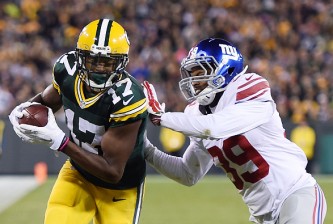Thousands of years ago, sports betting was a common part of Greek and Roman culture, where the ancients would bet on their favorite gladiators and chariots. Today, the tradition is still popular and has grown considerably, becoming a part of all sorts of modern sport. It has also spread globally, becoming a common pastime of people around the world.
Although it has not always been legal, and is still not legal everywhere, sports betting has a huge following. When people are passionate about sports and love rooting for their favorite players and teams, betting on their success seems to be a no-brainer.
Sports betting combines two exhilarating human passions: the thrill of a high-risk, high-reward mindset and the esteem boost of competitive success. Ultimately, people are emotionally invested in their favorite sports, and so the monetary investment is just another part of the culture.
Sports betting is most commonly associated with horse races, but it is available for practically all sports. Nowadays, sports betting is especially popular among American football, baseball, and soccer. And with the growth of its popularity, sports betting has evolved technologically too, expanding to online and mobile platforms.
If you’re thinking about getting involved in sports betting, it might be confusing at first. There’s a lot of terminology used in the field that’s important to know before placing a bet.
One of the first things to know is whether you’re voting for a favorite or underdog. The favorite is the team more likely to win, and the underdog is the team more likely to lose. While these terms are relatively common in regular conversation, in the sports betting world it might also contribute to how much you receive if you bet on the winning team.
Sports betting is not as simple as betting money and doubling it if you win. Ultimately, the bookmaker, or bookie, wins in the long run, no matter which team wins or loses. This is because they control the odds, which determine how much money you’ll receive if your bet wins.
It’s also important to note that sports betting is different everywhere, not just between countries, but between sports and bookmakers.
According to Lucian Marinescu at Online Casino Gems the most popular type of sports betting is known as point spread betting. “The point spread essentially creates an even field for both teams (at least in terms of betting, not actually winning). This makes it more even by decreasing the risk of betting on the underdog and increasing the risk of betting on the favorite.”
The point spread makes it so that you can win by betting on the underdog so long as either the underdog actually wins or if they lose by fewer points than the point spread. The favorite, on the other hand, has to not only win, but also win by at least the amount dictated by the point spread.
While the point spread is often used in American football and basketball, other sports, like baseball, use a moneyline. This is a simpler betting set-up, which only depends on who wins rather than by how much. This is used in sports where betting isn’t as popular to encourage people to participate in sports betting.
In addition to betting on who wins or loses, you can also bet on the total number of points scored in a given game. This is called the “over/under,” and is sometimes referenced as the “total.” As implied by the name, you place a bet on whether or not the game will end with a total score over or under a given amount.
When placing a bet, there might also be a “tax,” which is a commission paid to the sportsbook.
As mentioned before, sports betting has spread across all platforms, making it more easily accessible. According to Gambling News Magazine, online sports betting is actually more popular than online casinos across the globe. This is primarily attributed to the presence of sports betting on mobile devices.
Sports betting apps are also currently being developed and improved. Only a handful of sports betting apps exist as of now.
Something important to note before getting involved in sports betting is that even though it’s extremely popular all around the world, it’s still illegal in many places. So, you should be aware of whether or not it’s legal where you are.
Recently, many states in the US have been either beginning to legalize sports betting or at least moving towards it. Since the 2018 removal of the federal ban on sports betting, 11 states have legalized it.
After legalization, many casinos have opened up sports betting. According to Weekly Slots News, Horseshoe Casino near Chicago was one of these. Although the move was met with some criticism from gambling critics, it was estimated that sports betting would bring in a lot of money revenue. For this casino particularly, 15% of its sports betting proceeds are planned to be collected by the state and used for ‘capital improvements.’
According to Gambler’s Daily Digest, the online gambling market, and especially sports betting, has gained so much popularity that online casinos have become more willing to become licensed to be more accessible.
If you do decide to get involved in sports betting, there’s a couple of ways you could do it. While Las Vegas has many popular sportsbooks, you could also find a local bookie, if you don’t live anywhere near Vegas. You can also get involved in online sports betting or download an app.
For the online betting route, there are many websites that will give you bonuses for enrolling. It’s a great way to get started and try sports betting out.
If you’ve never been involved in sports betting, there are lots of tips and tricks online. You can also ask someone for advice if you have friends or family that love sports betting.
At the end of the day, sports betting is a game of chance and probability. But the best way to get involved and get better at sports betting is just to do it and try it out. There’s a whole variety of ways to bet and sports to bet on.






















